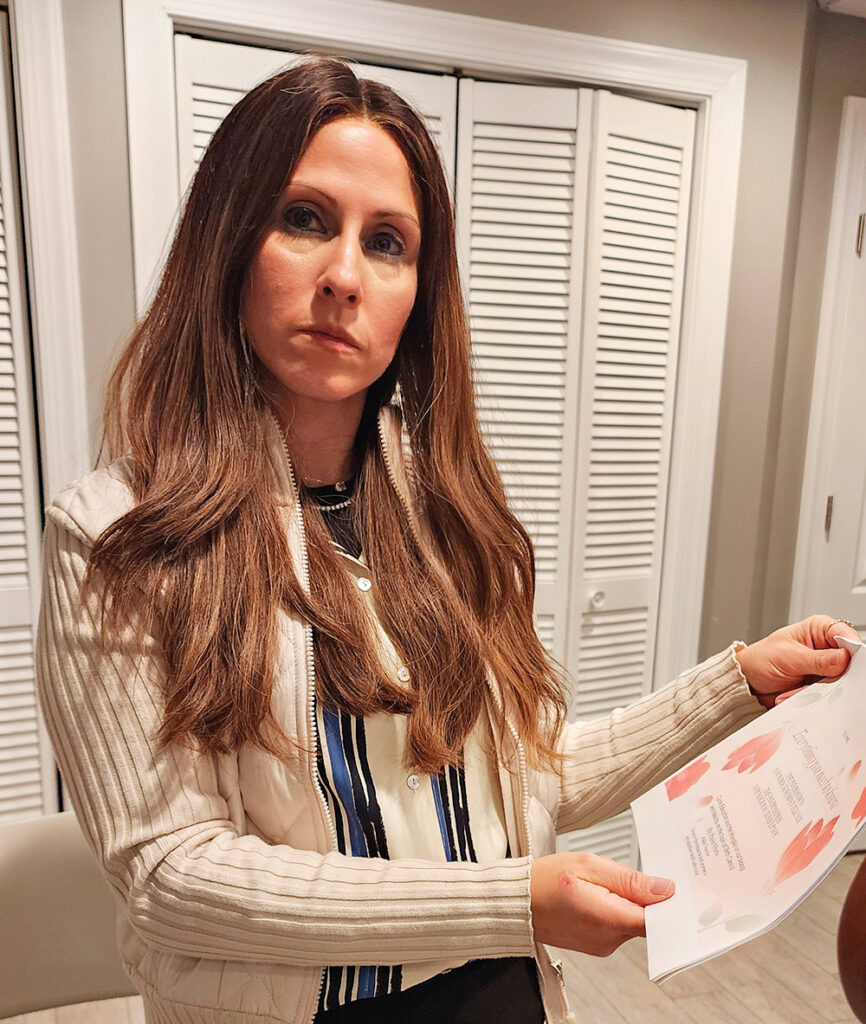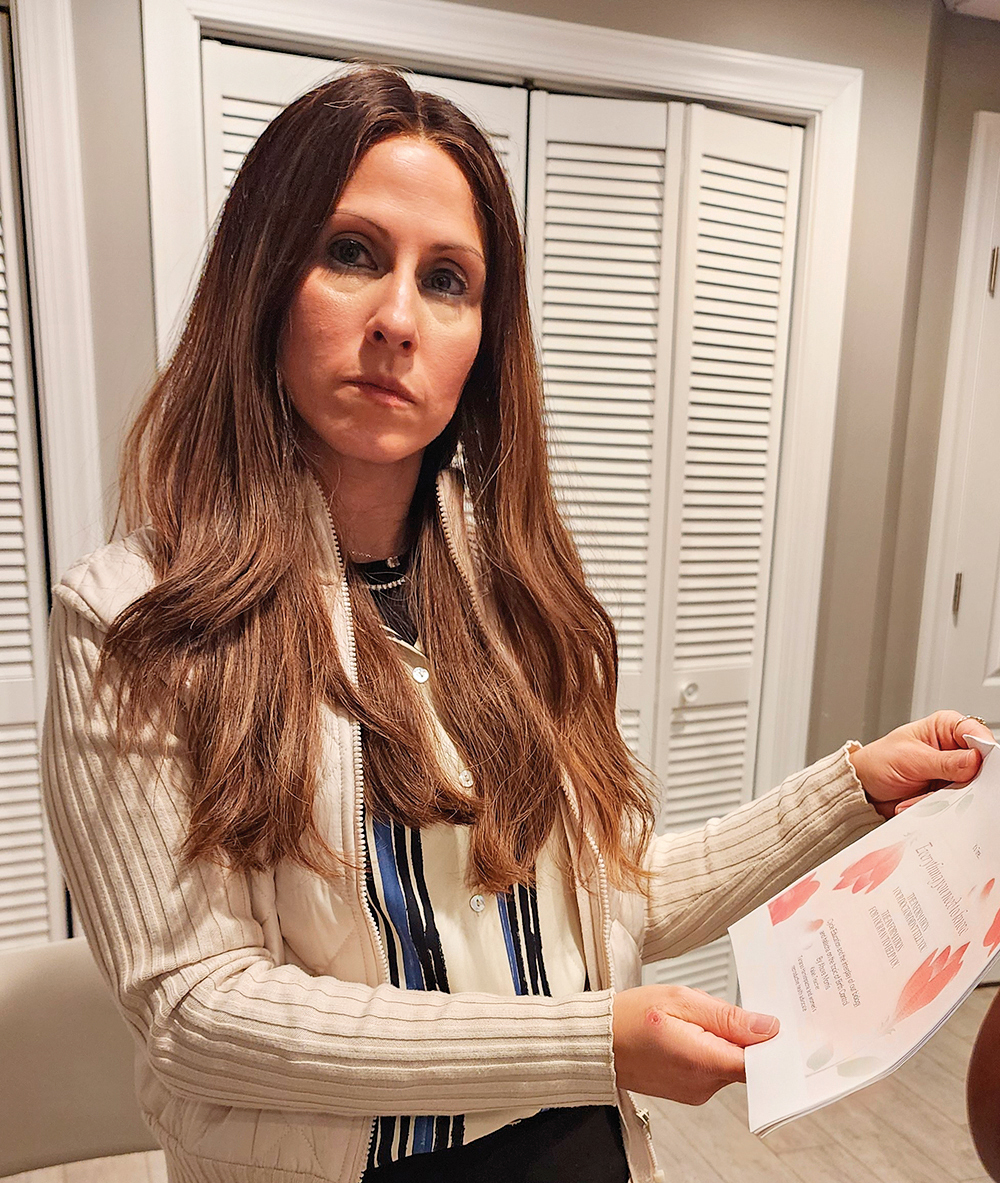
Nearly a dozen women spent an evening at a private home in Highland Park learning about the halachic, medical and emotional factors involved in asking rabbinic authorities questions about family planning. The December 23 gathering featured kallah teacher and taharat hamishpacha (family purity) advisor Ahuva Morris whose presentation provided the unique opportunity for women to learn more about this subject, with the goal of making more informed decisions about navigating family planning with haskamas rabbanim (rabbinic approval).
Morris became an advocate on women’s health issues and taharat hamishpacha out of personal experience and the desire to have someone to consult with herself. She wished she had had someone to talk to who could bridge the medical and halachic concerns involved in this issue. She believes conversations about family planning should be more accessible so people would be better equipped with the knowledge to do what is best for them and their individual situations.
After an introduction by the event’s host, Morris began by thanking everyone for coming out, adding they should “thank themselves for taking the time to overcome our relatively elementary education of taharat hamishpacha, the role it plays in the lives of women, and providing yourselves with the gift of knowledge.” Delving deeper into this subject, and learning about positives and negatives of available options, “can have an impact on discussions with your spouse, doctor and rav,” she continued.
Morris noted that most observant women learn a bit about taharat hamishpacha in high school and perhaps a bit later before their wedding, but there is so much to be aware of and often women are not as versed as they ought to be. She stressed that her presentation is for “informational purposes only” and not for specific medical or rabbinical advice.
Family planning is multi-faceted and unique to each woman; it should not be considered one size fits all. Morris said, “There are many layers and nuances to the topic in general, and based on a woman’s lifestyle, age and marriage stage, it can be quite complicated. Family size can present internal and family conflict. The mitzvah of having a family ‘to populate the land’ is clear, yet there is no specific number of children listed. In the frum community the trend is to have more children than the standard fulfillment of the mitzvah by having one girl and one boy.”
There are also considerations for shalom bayis (peace in the home). Is the woman able to have many children and care for them emotionally and financially? Would economic issues disrupt the family? Would the spacing of children help create a better family situation?
Scientific and technological advances have contributed to the evolution of taharat hamishpacha, changing the landscape over the years. But these advances do not necessarily mean that all trends will work for all women—and not all new avenues are accepted halachically.
Decades ago, distance from a mikvah and extended nursing of children, before widespread use of infant formula, increased spacing between pregnancies for observant women. What new options are available for family planning for observant women with the availability of formula, child care and accessibility to a mikvah? The answer varies and depends on whether the woman already has children, her health and other issues. “Women’s reproductive health includes not only physical health, but emotional and mental health as well.”
Morris quoted noted rebbeim who are of the opinion that in cases of pregnancy and women’s issues it is not considered “rabbi shopping” to find a rav who can understand her family needs. “It is very important to be on the same page with your rav,” she explained. She noted that it is critical to find a rav who is highly specialized in this area of knowledge. While many local rabbis can determine questions involving whether something is kosher or not, family issues (such as genetics or infertility) are a highly specialized area of expertise and not everyone has that knowledge. She continued, “You wouldn’t go to a general practitioner for treatment of a rare blood disorder. It is OK to search for a rav who has the knowledge as well as the time, sensitivity and attention you deserve.”
Following a review of anatomy and physiology, Morris presented some of the hormonal and non-hormonal options available for family planning, noting that not all of them are halachically permissible. She also mentioned side effects, positive and negative aspects, for each option, as well as how quickly the effects are “reversible,” when a woman’s body regains its ability to become pregnant. Concerns with hormonal therapies are their possible interaction with, and possible exacerbation or aggravation of, other hormonal issues such as thyroid or inflammatory body conditions.
Morris noted that women have been struggling with these questions for some time and rabbis are becoming more aware of their concerns. Her basic rule of thumb is “always ask, never assume” the answer to any question. She concluded by saying there is no need to suffer when talking about issues of taharat hamishpacha. Each woman should know how to advocate for herself and “know when to push back. Women’s bodies are complicated, with layers of complexity and perspectives that influence our viewpoints,” she said. Education is very important with such a personal subject and Morris is happy that women are taking control of their bodies and understanding the many tools and options that are available to them.
For more information about women’s health or in-person or remote consultations with Morris, call 908-227-3155.










